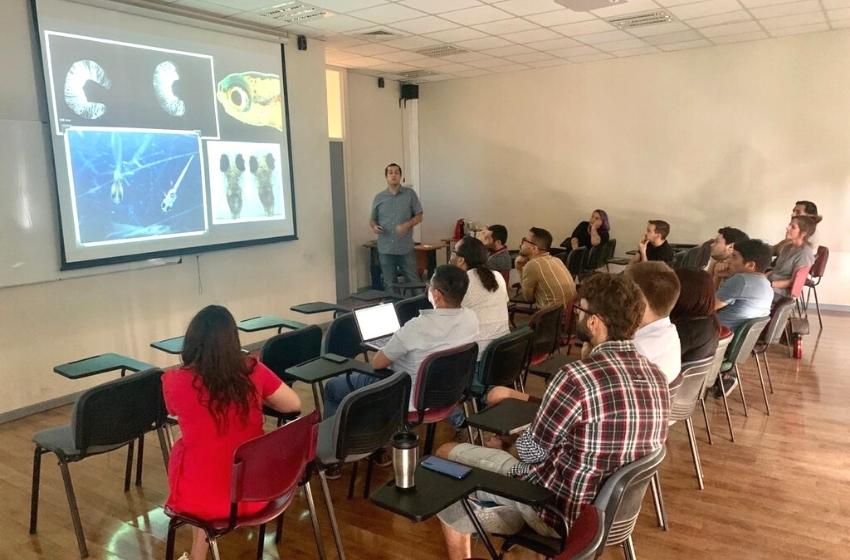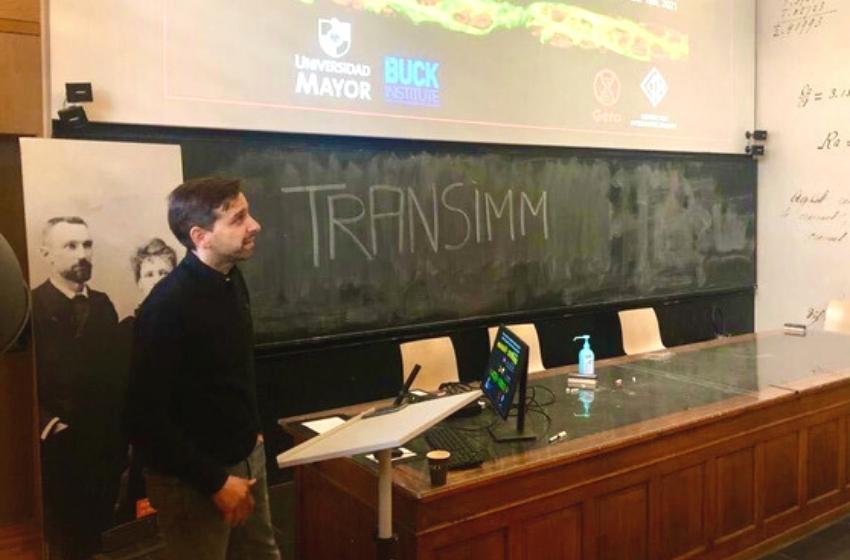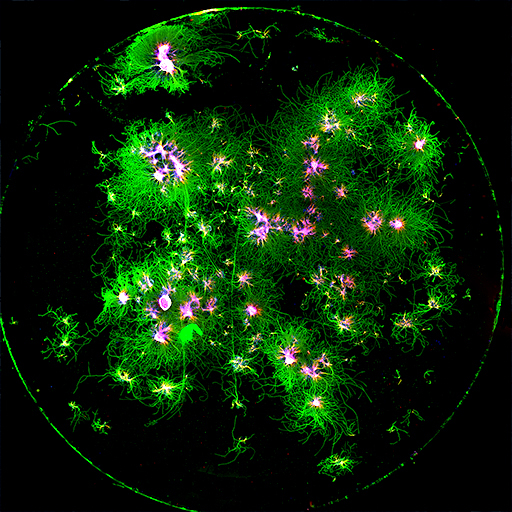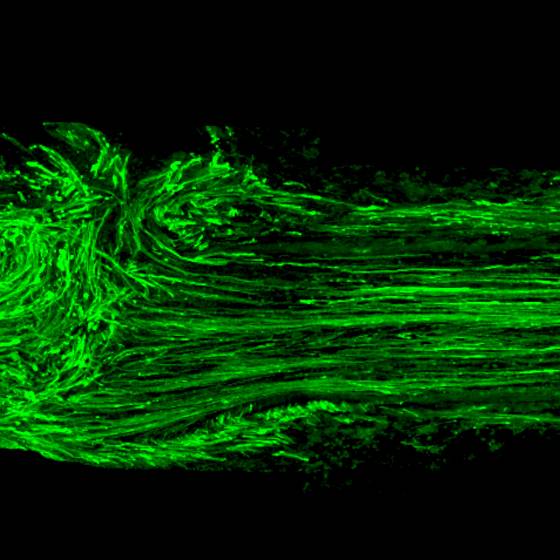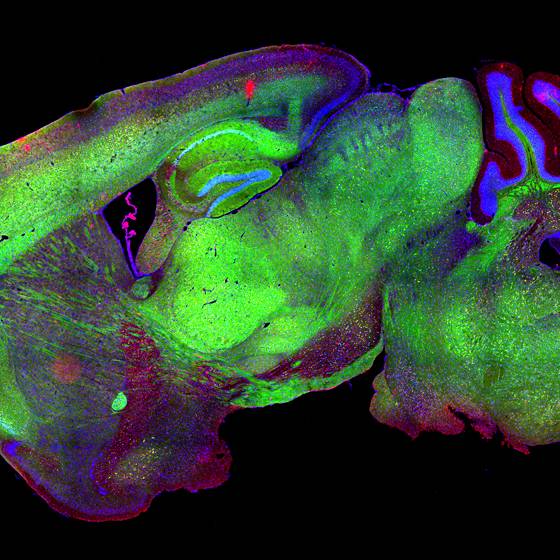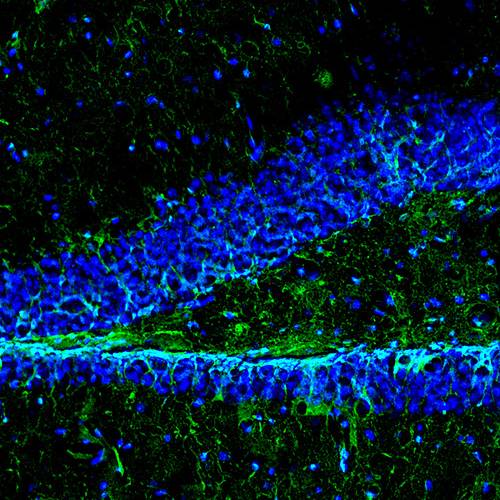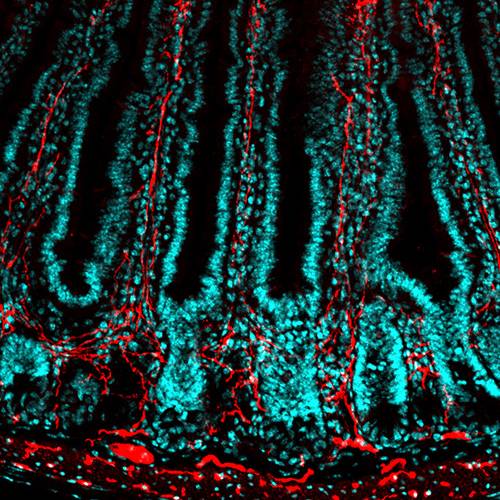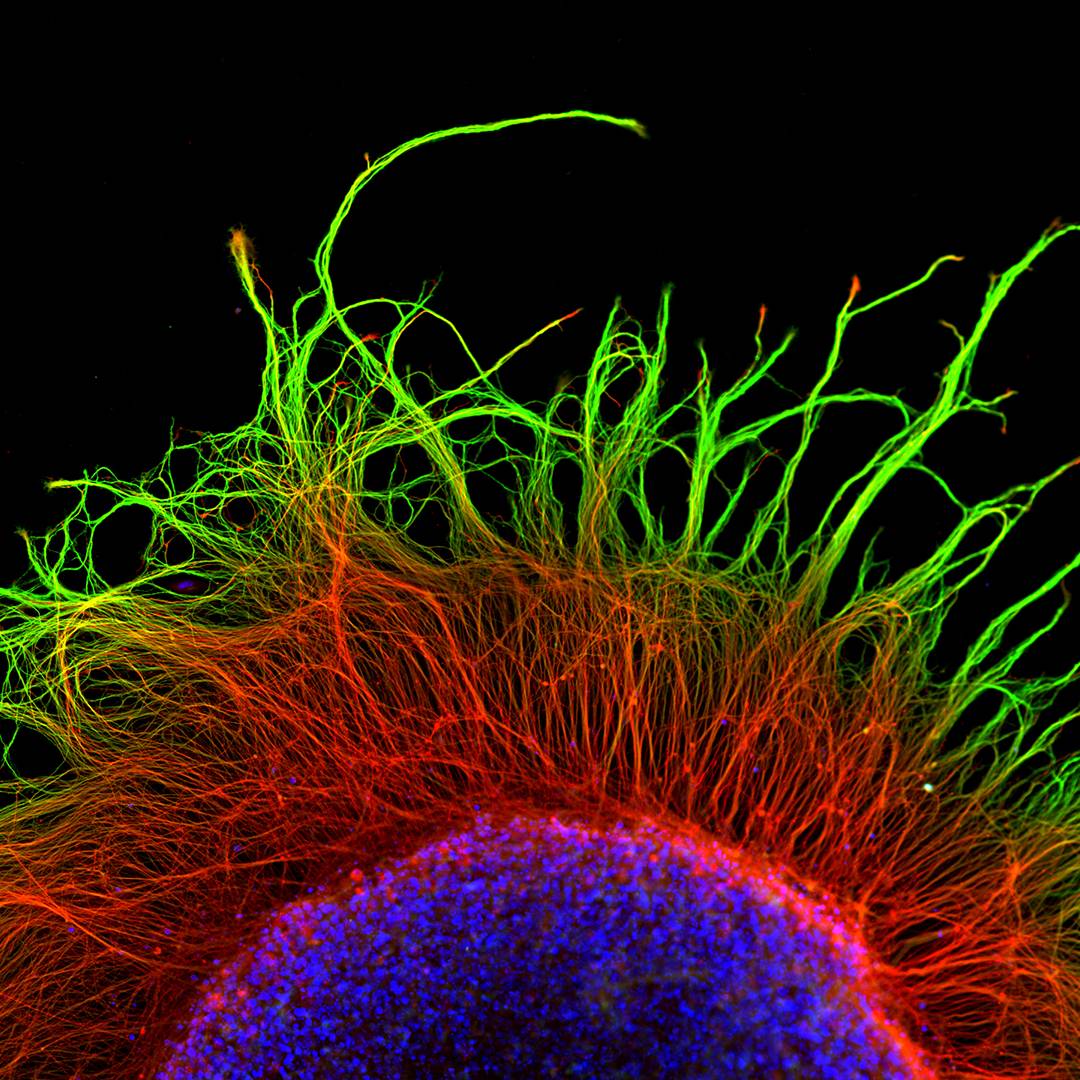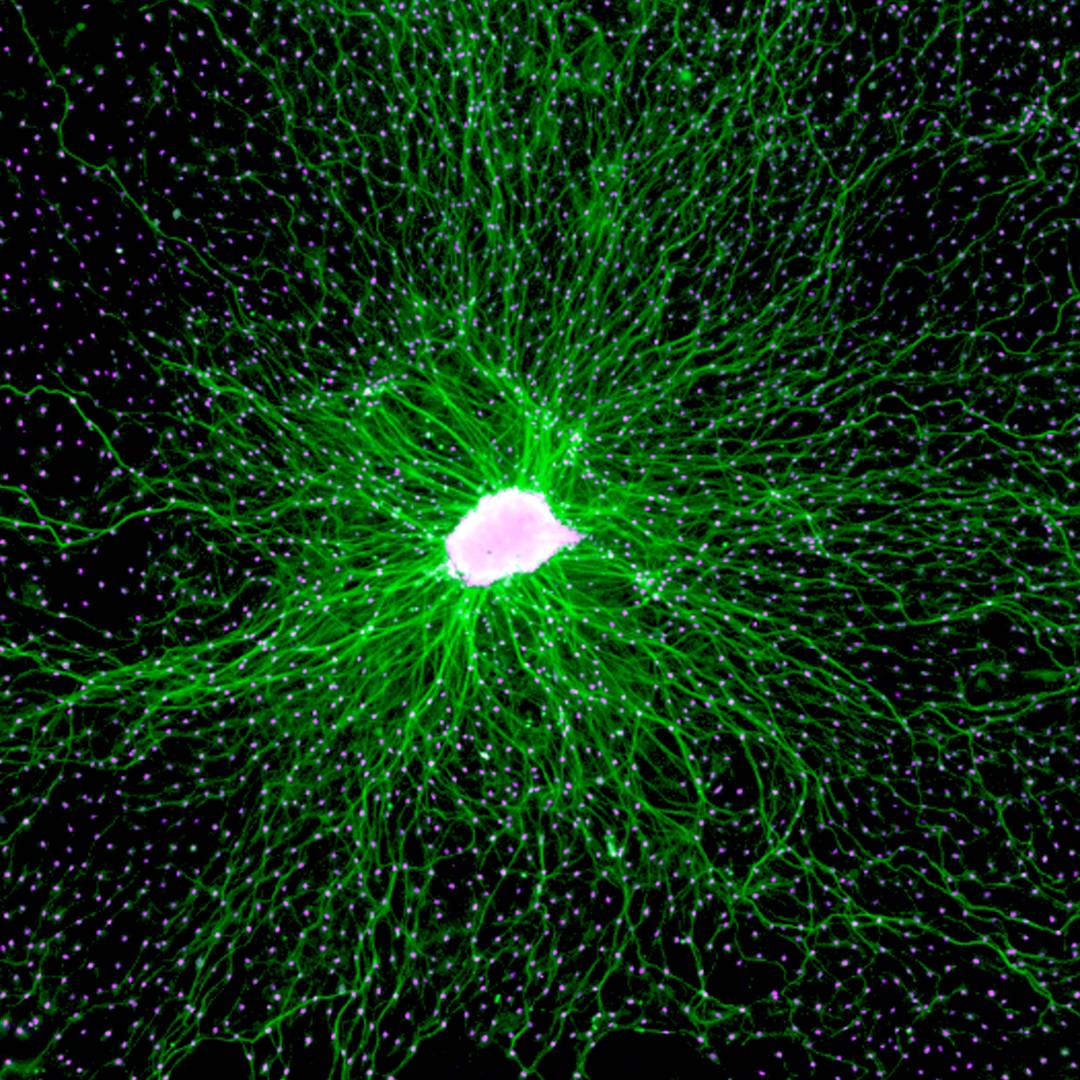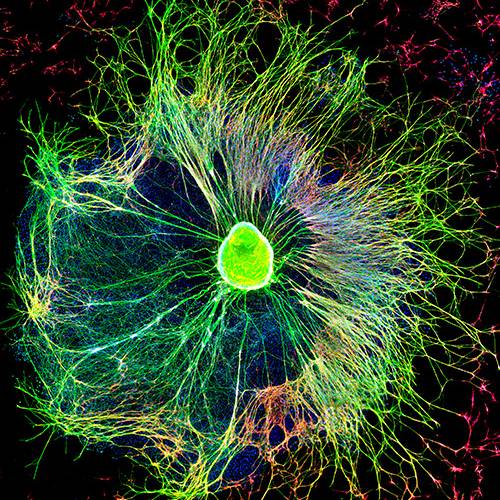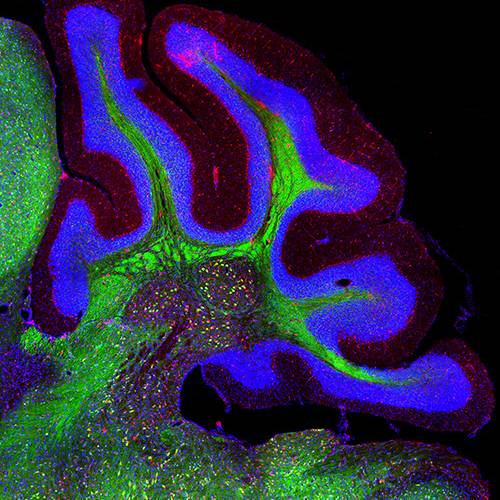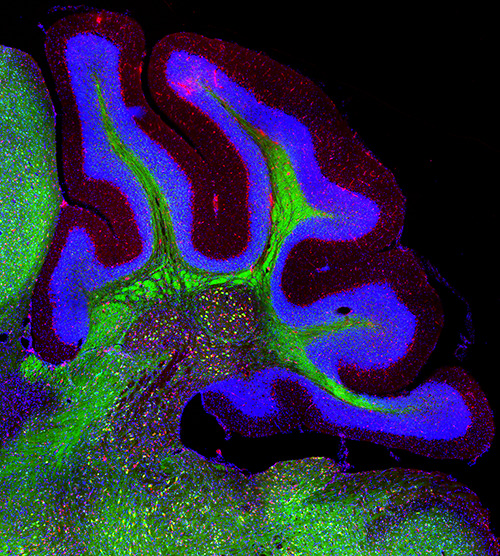Schwann cell regulation of axonal regeneration
In the mammalian nervous system, the regenerative capabilities of neurons show regional variability. In the peripheral nervous system (PNS), axons efficiently regenerate after nerve damage associated to the pro-regenerative effect of Schwann cells. In contrast, in the central nervous system the regenerative capability is poor due to both neuronal intrinsic limitations and glial responses that restrict regeneration. Although, axonal regeneration in the periphery show good regenerative capacity in preclinical models, it still represents a clinical problem associated to delayed repair of peripheral nerves, and the negative effects of aging and other conditions, including diabetes, for axonal regeneration and functional recovery. In the lab, we study how Schwann cells reprogramming regulates axonal regeneration after nerve damage, in order to manipulate this response to enhance axonal regeneration.
Longitudinal section of a sciatic nerve, with regenerating axons crossing a surgically repaired region, axons are labelled using an antibody against the protein SCG10.
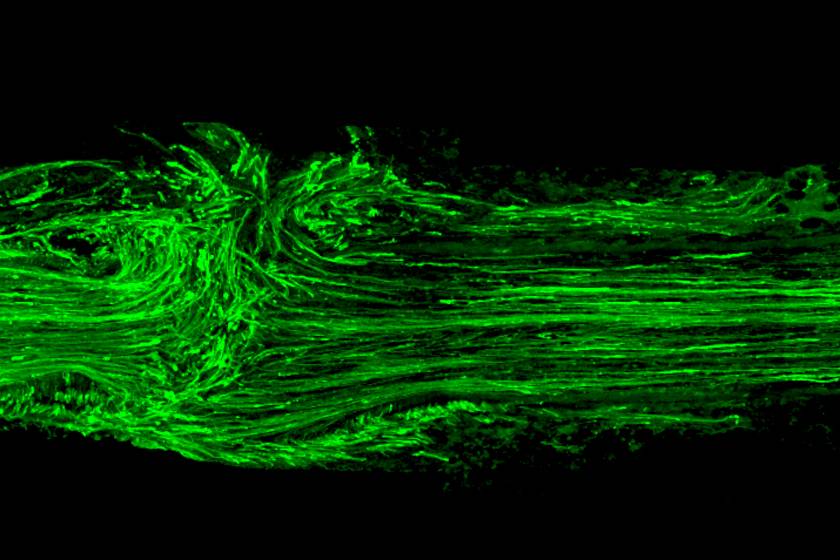
Schwann cell exosomes enhance axonal regeneration
In the peripheral nervous system, regeneration of injured axons depends on the reprogramming of Schwann cell from a differentiated phenotype into a phenotype known as repair Schwann cells. Our lab was the first to demonstrate that Schwann cell exosomes enhanced axonal regeneration in vitro and in vivo in laboratory animals, an effect we later showed was dependent on the reprogramming of Schwann cells into a repair phenotype, and associated with the loading of specific miRNA into exosomes and their transfer to axons. In addition, we are exploring the effects of aging, chronic denervation and diabetes in Schwann cell reprograming and axonal regeneration, in order to develop interventions to enhance axonal regeneration in these conditions.
People involved
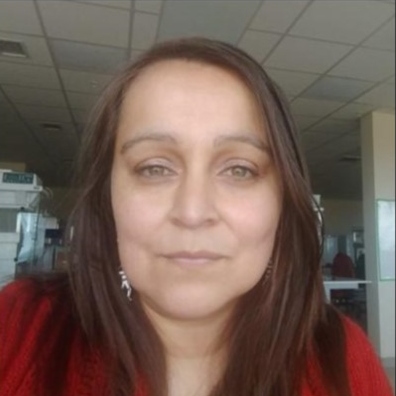
Daniela Rebolledo
Senior Research Assistant

I am a Biochemist from Pontificia Universidad Católica de Chile (PUC) and PhD in Cell and Molecular Biology from the same university. My PhD thesis research was performed at the Physiology and Biophysics department, University of Washington. My research has focused on the physiology of the neuromuscular system and the pathological mechanisms behind neuromuscular disorders of diverse etiology.
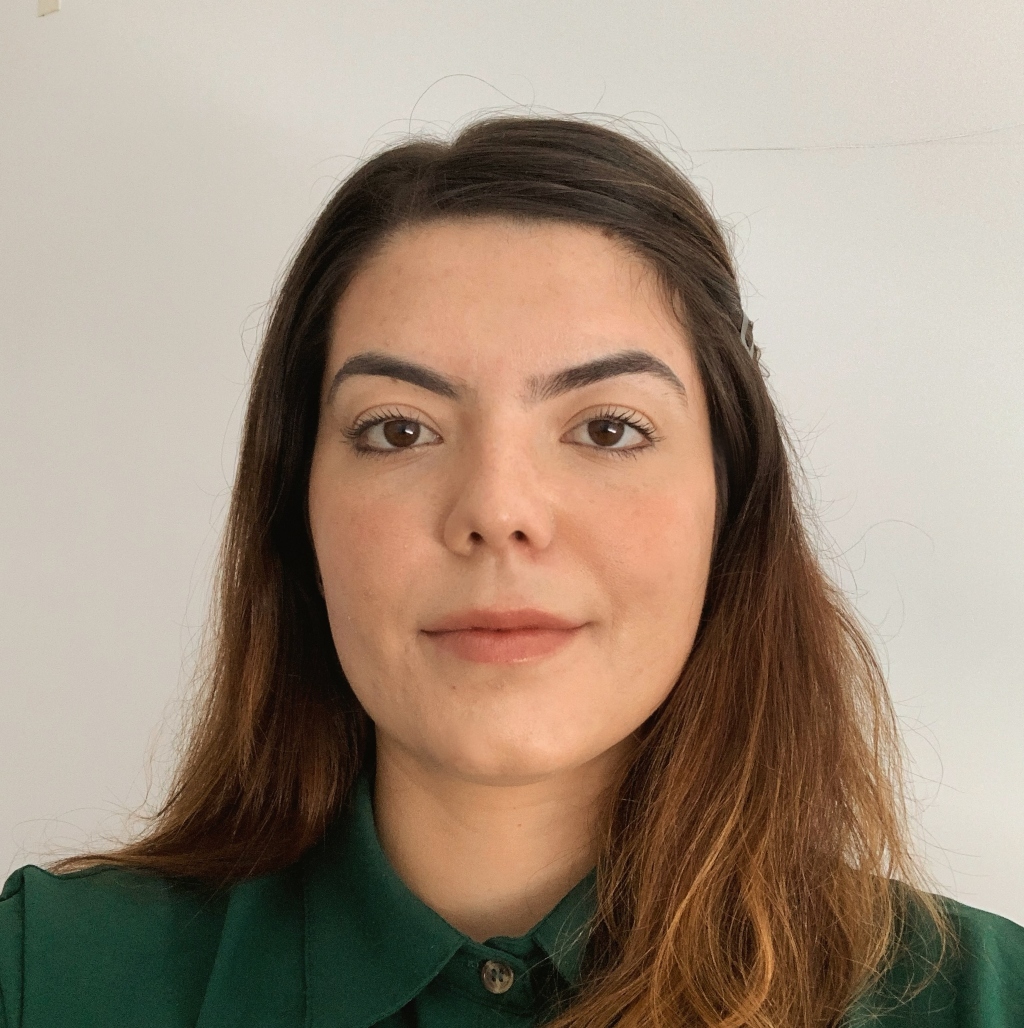
Karina Girardi do Carmo
Postdoctoral fellow

Biologist, Ph.D., and MSc in Cell and Molecular Biology from Oswaldo Cruz Foundation (Fiocruz/RJ). Studying age-dependent decline of regenerative capacity in the peripheral nervous system. Mainly focusing on the contribution of metabolic profile of aging Schwann cells in senescence and particularly exploring the epithelial-mesenchymal transition (EMT) like process.
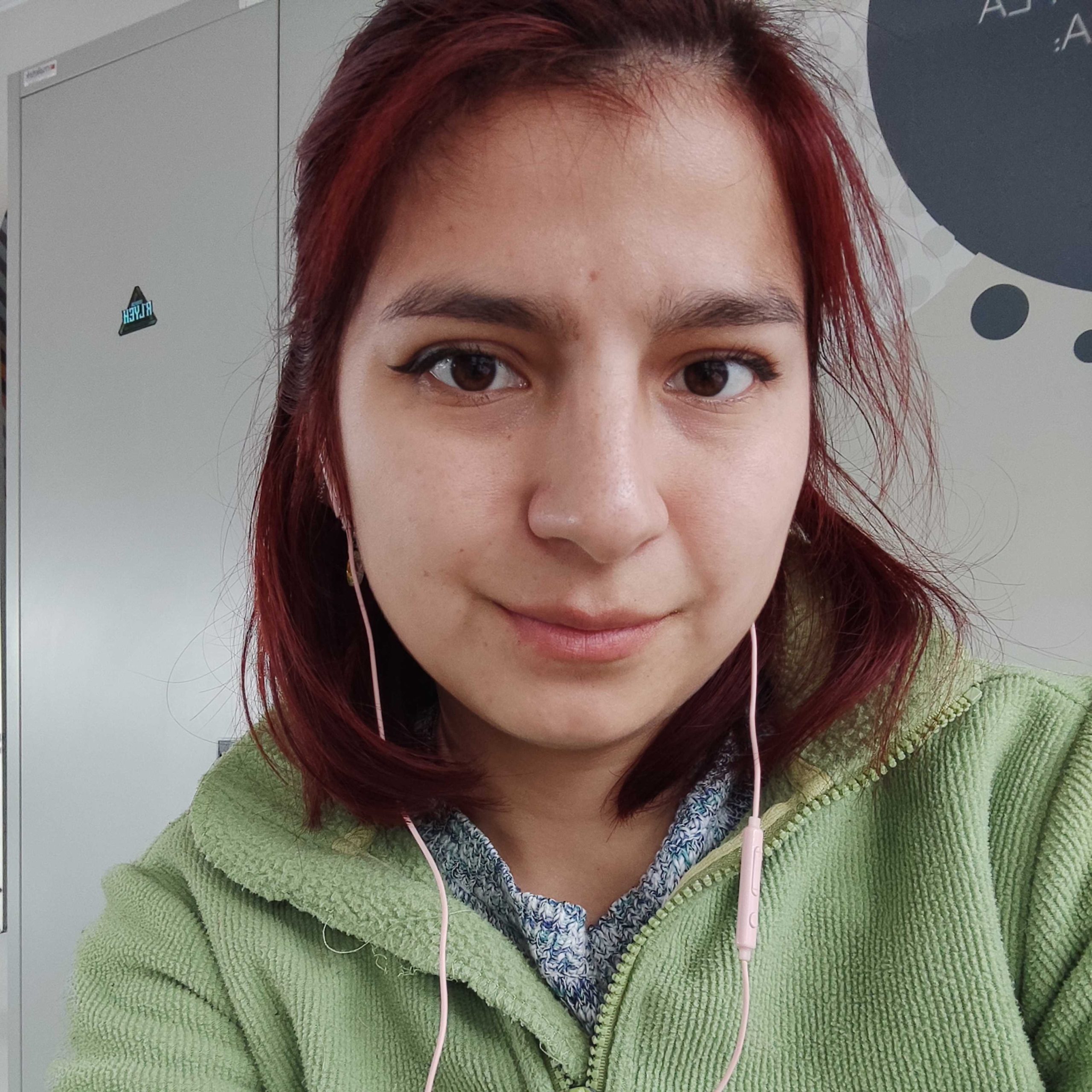
Renata Gallardo
Research Assistant

I studied Medical Technology at the Universidad Mayor acquiring knowledge in histological techniques, immunohistochemistry and immunofluorescence. I am interested in learning more from the world of neurosciences and related pathologies to find new treatments to improve the quality of life in aging.
Related Publications
septiembre 30, 2021
Basal lamina: Schwann cells wrap to the rhythm of space-time.
Court FA, Wrabetz L, Feltri ML.
Curr Opin Neurobiol. 2006 Oct;16(5):501-7. doi: 10.1016/j.conb.2006.08.005. Epub 2006 Sep 7.
PMID: 16956757
PUBLICATIONSDataNervous System FxPNS
septiembre 30, 2021
Neurofascins are required to establish axonal domains for saltatory conduction.
Sherman DL, Tait S, Melrose S, Johnson R, Zonta B, Court FA, Macklin WB, Meek S, Smith AJH, Cottrell DF, Brophy PJ.
Neuron. 2005 Dec 8;48(5):737-42. doi: 10.1016/j.neuron.2005.10.019.
PMID: 16337912
PUBLICATIONSReviewNervous System FxPNS
septiembre 30, 2021
Local regulation of the axonal phenotype, a case of merotrophism.
Court FA, Alvarez J.
Biol Res. 2005;38(4):365-74.
PMID: 16579519
PUBLICATIONSDataNervous System FxPNS
septiembre 30, 2021
Restricted growth of Schwann cells lacking Cajal bands slows conduction in myelinated nerves.
Court FA, Sherman DL, Pratt T, Garry EM, Ribchester RR, Cottrell DF, Fleetwood-Walker SM, Brophy PJ.
Nature 2004 Sep 9;431(7005):191–5 doi:10.1038/nature02841.
PMID: 15356632
Related News
Doctorado en Neurobiología logra acreditación por dos años
diciembre 21, 2021
El programa dirigido por la Dra. Melissa Calegaro, cuenta con 11 estudiantes y espera graduar a su primer estudiante en marzo de 2022. Con este nuevo hito, la U. Mayor, se consolida como una…
Centro de Biología Integrativa U. Mayor fortalece colaboración con el Instituto Curie en Francia
noviembre 24, 2021
El Director del Centro, Dr. Felipe Court, participó en la serie de seminarios “Marie Curie” invitado por el Dr. Christophe Lamaze, con quien colabora a través de un proyecto ECOS-ANID para investigar…
